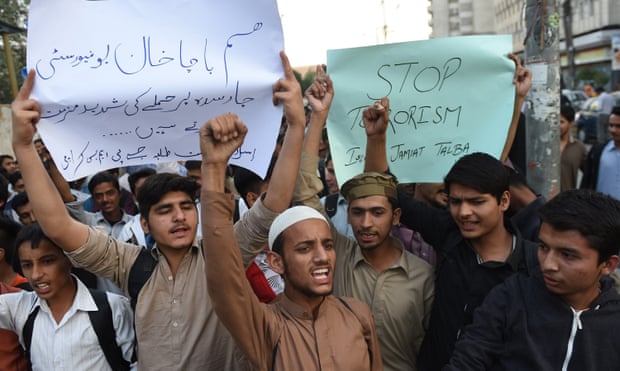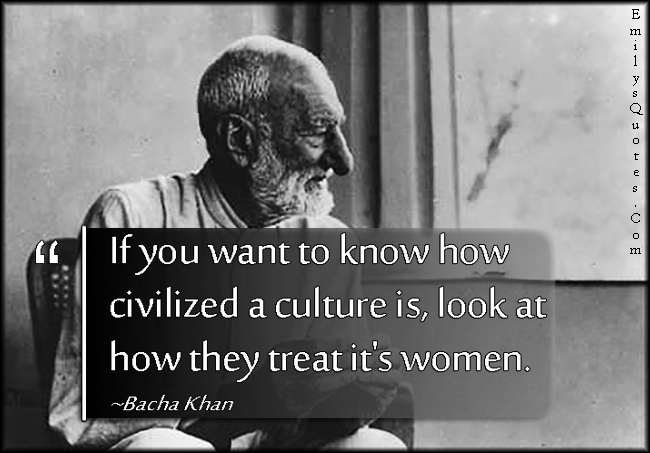By Kamila Shamsie
Attacks on educational institutions have become a hideous way of marking the start of a new year in Pakistan. On 5 January 2014, the heroic studentAitzaz Hasan died while struggling with a suicide bomber to prevent him from entering his school. On 15 January 2015, armed men on a motorcycle opened fire near the front gate of a girls’ school (the gate was closed, and the actions of an armed security guard – all schools now have them – meant the gunmen fled); and 20 January 2016 has given us the attack on Bacha Khan University, with the death toll at 30. The attack has been claimed by a Pakistan Taliban (TTP) commander, Umar Mansoor, the man behind the massacre at Peshawar’s Army Public School in December 2014 – although the leader of the TTP has denied any involvement.
Since 2011, there have been 29 attacks on schools and universities in Pakistan – 30 if you include the attack on the school van that was carrying Malala Yousafzaiwhen she was shot. It’s horrific but not inexplicable that schools should become frontline targets in a state in which terrorist groups operate – what more effective way to terrorise a nation than by killing its children in their playgrounds? But some of the targeted schools seem to have a particular reason for drawing the attention of the Taliban – the Army Public School was singled out for educating the children of the military; the van carrying Malala was attacked because its 15-year-old passenger had dared to challenge the Taliban’s rule of fear; and Bacha Khan University is very likely to have been attacked because everything represented by its namesake, the anniversary of whose death was being commemorated on the day of the attacks, stands in opposition to the Taliban.
Bacha Khan – the honorific title given to the Pashtun anti-colonial leader Abdul Ghaffar Khan – was part of the triumvirate of heroes who Malala mentioned in her speech to the United Nations, alongside Mother Teresa and Nelson Mandela. If Bacha Khan is less well-known a name than the other two, it is partly because his Pashtun nationalism frequently placed him at loggerheads with the Pakistan state following the departure of the British. As such, he’s never received the recognition he deserves within his home nation.
Although he’s sometimes called “the Frontier Gandhi” by non-Pashtuns, in recognition of his alliance with Gandhi and his non-violent ethos, the name fails to recognise how singular a figure he was, and how rooted in his own context. His philosophy of non-violence drew strongly on Pashtunwali – the Pashtun code of ethics – and on Islam; his success in spreading that philosophy in the 1930s flew in the face of received wisdom about the love of guns at the heart of Pashtun culture and the violence of Muslims.
The British just about knew how to contend with vegetarian Hindus who raised slogans rather than guns, but Bacha Khan’s “unarmed army” of Pashtuns, which turned the martial race stereotype on its head, left them completely bewildered. For everyone who thinks Islam and the Pashtuns are best represented by the Taliban, there is no clearer rebuke than the name Bacha Khan. Still revered among many Pashtuns, his political legacy deeply damaged but alive – it’s no wonder that a commemoration of his death anniversary, at a university bearing his name, should have drawn the attention of a man best known for sending his followers to slaughter children.
How might Bacha Khan have responded to the threat of the Taliban? This was a man who said non-violence could be most effectively used in a political fight against those who could be shamed.
Where is the shame of child-killers? It is a matter of some sad reflection that on the anniversary of his death, the real hero to arise from the campus bearing his name is the chemistry professor, Syed Hamid Hussein, who drew a gun and fired on the assailants to protect his students. He was killed. Pakistan now has another name on its long roll-call of heroes, when what it really needs is an end to shamelessness.



No comments:
Post a Comment